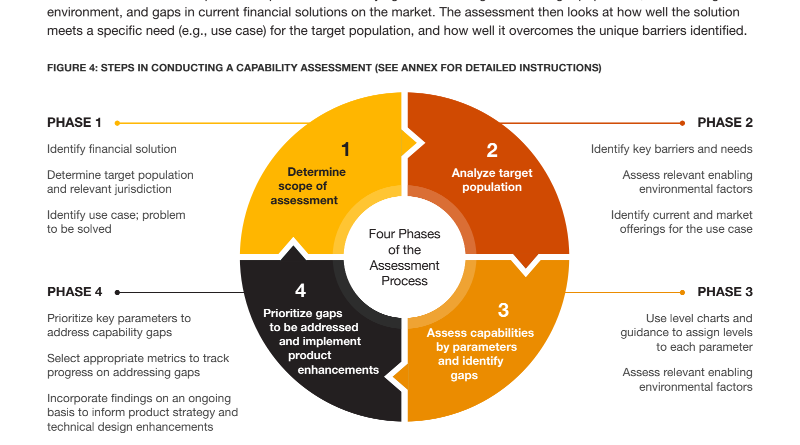The Ultimate Guide to 2025 Crypto Tax Strategies That Save Money
- 1. Stay Updated with Crypto Tax Regulations in 2025
- 2. Leverage Tax-Loss Harvesting for Crypto Assets
- 3. Utilize Tax-Advantaged Accounts for Crypto Investments
1. Stay Updated with Crypto Tax Regulations in 2025
Understanding the Current Legal Framework
As of 2025, the landscape of crypto tax has become increasingly complex, requiring investors to stay informed about the latest regulations. Governments worldwide, including the U.S. IRS, have introduced new guidelines that classify various crypto activities and transactions. For instance, recognizing whether your trades are short-term or long-term impacts your tax obligations significantly.
Keeping track of these rules is essential. For example, in 2024, the IRS increased enforcement efforts and introduced clearer reporting standards for crypto exchanges. Failure to comply can lead to penalties, interest, or audits. Thus, staying informed is your first step to effective crypto tax management.
Use reputable sources such as official government websites, reputable tax blogs, and professional advisors to stay ahead. Being proactive about understanding your crypto tax responsibilities will empower you to plan better and avoid surprises during tax season.
2. Leverage Tax-Loss Harvesting for Crypto Assets
What is Tax-Loss Harvesting?
Tax-loss harvesting involves selling crypto assets at a loss to offset gains elsewhere in your portfolio. This strategy can substantially reduce your taxable income, especially if you have realized significant gains over the year.
In 2025, many investors are utilizing tax-loss harvesting not just for tax savings but also for strategic rebalancing. For example, if Bitcoin’s value drops after a substantial rally, selling to realize the loss allows you to offset gains from other assets and reinvest in promising crypto projects at a lower cost basis.
It’s crucial to keep detailed records of each transaction. Using crypto tax software will make this process easier and ensure compliance with IRS rules. Remember, you can also carry forward losses to future years if your losses exceed gains in 2025.
Practical Tips for Effective Tax-Loss Harvesting
Always evaluate your entire portfolio before making transactions. The goal is to maximize your tax benefits without disrupting your long-term investment strategy. Be aware of wash sale provisions, which generally disallow claiming a loss if you buy back the same or a substantially identical crypto within 30 days.
Timing is keyâconsider harvesting losses toward the end of the fiscal year to optimize your tax position. Consulting with a credentialed tax professional can help you navigate complex rules and apply this strategy effectively.
3. Utilize Tax-Advantaged Accounts for Crypto Investments
Crypto in Retirement Accounts
One innovative way to manage your crypto tax in 2025 is by investing through tax-advantaged retirement accounts like IRAs or 401(k)s. Some providers now offer crypto holdings within these accounts, allowing you to defer taxes or even achieve tax-free growth.
This strategy can help you avoid immediate taxable events while growing your crypto investments over decades. For example, a Roth IRA allows tax-free withdrawals, making it an ideal vehicle for long-term crypto holdings.
Before proceeding, ensure your chosen provider supports crypto investments and adheres to strict compliance standards. This method is especially advantageous if you plan to hold assets for the long term and want to simplify your crypto tax planning.
Tax Benefits of Using Accounts for Crypto
Utilizing tax-advantaged accounts can significantly reduce your current year crypto tax liability. Additionally, it offers protection against future regulatory changes by housing your crypto assets in compliant structures.
Be aware that early withdrawals may incur penalties or tax consequences, so plan your strategy carefully. Overall, integrating crypto into retirement accounts offers a powerful way to save money on crypto tax in 2025.
Conclusion
Successfully managing your crypto tax in 2025 requires staying informed, employing strategic tactics, and leveraging available tools and accounts. By understanding the latest regulations and applying proven strategies like tax-loss harvesting, using tax-advantaged accounts, and keeping accurate records, you can significantly reduce your tax liability. Remember, proactive planning and expert advice are your best allies in optimizing your crypto tax situation this year.
In this ultimate guide, we’ve explored some of the most effective strategies to help you save money on your crypto tax in 2025. Stay vigilant, adapt to changing regulations, and make informed decisions to maximize your crypto investments’ after-tax returns.
FAQ
1. What is crypto tax and how does it affect my investments?
Crypto tax refers to the taxes imposed on various cryptocurrency activities, including trading, mining, and earning. It affects your investments by determining your tax liability based on gains, losses, and transactions. Proper planning can help minimize your crypto tax and maximize your returns.
2. How can I reduce my crypto tax in 2025?
You can reduce your crypto tax in 2025 by employing strategies like tax-loss harvesting, investing through tax-advantaged accounts, and keeping meticulous records of all transactions. Consulting with a tax professional can also provide personalized advice.
3. Are crypto gains taxed differently than traditional investments?
Yes, in many jurisdictions, crypto gains are treated as property gains, which may be taxed at different rates than stocks or bonds. It’s important to understand local regulations to comply and optimize your tax situation.
4. Why is tracking my crypto transactions important for crypto tax?
Accurate transaction tracking ensures you report correct gains, losses, and income. It helps prevent errors, penalties, or audits, especially with the increasing complexity of crypto regulations in 2025.
5. Where can I find reliable resources to learn about crypto tax strategies?
Trusted sources include government tax agencies, reputable financial advisors, and dedicated crypto tax platforms. Staying updated with recent publications will help you adapt your strategy effectively.
Related Content
- A Plan To Opt Out And De-Google Your Phone To Use Bitcoin Privately
- Building Nigeria’s Bitcoin’s Village
- $48K is now ‘reasonable’ BTC price target — DecenTrader’s Filbfilb
- The Latest Developments in Blockchain Technology and What They Mean for Cryptocurrency Users
- SEC seeks to question Terraform Labs co-founder Daniel Shin in Korea


